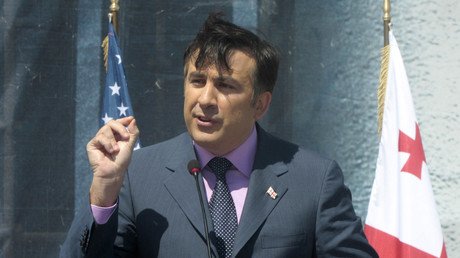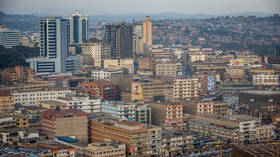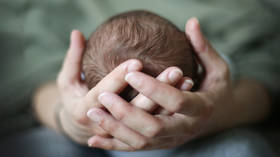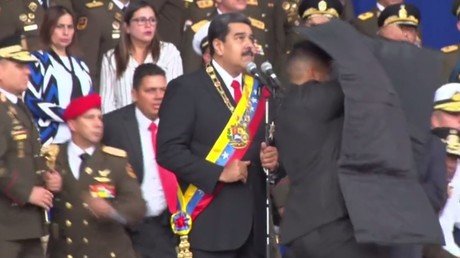‘I was born amid Georgian shelling’: 10 yrs after war, RT documents South Ossetia people’s scars
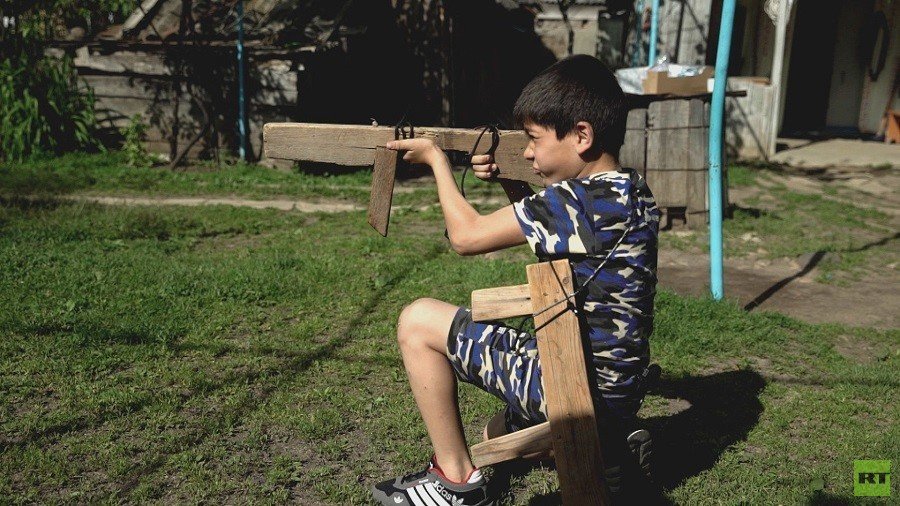
Ten years after Georgia tried to seize the breakaway region of South Ossetia by force, RT spoke to survivors about how they have coped with the mental and physical scars suffered in those few days.
From a boy who was born to a cannonade of Georgian shelling in Tskhinval, to a nurse injured while trying to treat Russian peacekeepers besieged by Georgian troops, to a Florida man, whose Ossetian wife was caught in the crossfire – thousands of people were affected by the August 2008 war.
RT’s documentary tells the stories of ordinary people, and of the burdens they have been carrying, in an attempt to answer a question: Can there be lasting peace on the war-scarred land of South Ossetia?
Arsen turned 10 on August 8. When he was born, his home city was under heavy shelling by the Georgian troops. Doctors were preparing to assist with the delivery in a basement, which offered some protection from incoming projectiles and debris.
“An ambulance came to take me to the hospital,” recalled Arsen’s mother Shorena Kachmazova. “There was heavy gunfire. When I reached the city, it was burned out and lay in ruins. There were burnt-out cars everywhere. That's how I got to the maternity hospital.”
“We delivered him as the shells came down!” said Nellu Khugaeva, a nurse. “It was terrifying! We were shaking!”
Arsen said he was told a grenade blew up outside the hospital just as he was born.
Maya Bestaeva served as a military medic during the 2008 war. She was at the base of the Russian peacekeepers stationed in South Ossetia, when the compound was attacked by advancing Georgian troops.
READ MORE: 10 years since Georgia attacked South Ossetia and Russia – not the other way around
“They were shooting everywhere. The drill square across from me was like a death strip. It was too dangerous to cross, but I still made a few trips back and forth to help the wounded,” she said.
There were about 50 injured people at the site by the time the attack ended. Maya was among them. A wall collapsed on her. Her son was with the reinforcement, which was trying to reach the peacekeepers and help them. He too was badly hurt in an ambush near the base.
Despite all the shells and bullets that rained down on the city of Tskhinval, there was little doubt in the US mainstream media who should be blamed for the war – Russia. But Joe Mestas of Florida knew what was really happening on the ground, because on August 8, 2008 his Ossetian wife, Zhanna, was visiting her family in Tskhinval with their daughter Sandra. Mestas now recalls the terrifying days when he feared he could lose both.
“In the morning of the 8th she [Zhanna] calls me, and says that they bombed a couple hundred meters away from her mother’s house. I remember I was actually crying and afraid, and thinking that if anything happens to my family I’m going to kill Saakashvili, and I meant that,” Joe said, referring to the Georgian president, who ordered the attack.
“Here the mainstream media reported that Russia started the conflict, and said nothing about Saakashvili opening fire on the night of the beginning of the Olympics in Beijing,” he said. “I’ve talked to many people. I’ve posted many things on the Internet, letting people know the truth about what really happened.”
He said the European Union probe confirmed that Georgia was the one who launched the aggression, but that it did little to draw sympathies to the plight of Ossetians.
Watch the full documentary for more first-hand stories of people touched by the war.
Subscribe to RT newsletter to get stories the mainstream media won’t tell you.
